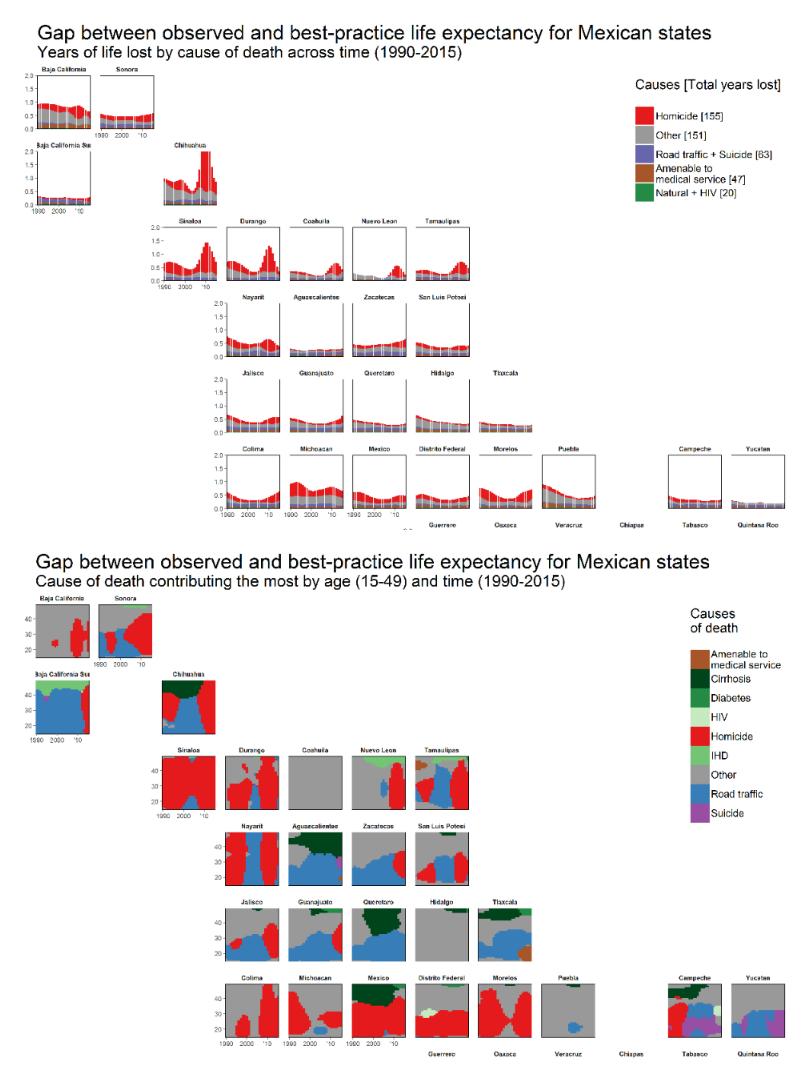[I took two things from the Retreat.] The first is that alternatives to the traditional conference format for academic meetings in demography have a lot to recommend them. Smaller workshops of course have long been popular, but perhaps experiments with even more focussed formats like the hackathon, where the expectation is that the meeting will result in some final product, may be worth investigating given the time pressure many academics are under.
Secondly, there are also many opportunities to improve the impact of our research through better use of interactivity in visualisation. The human mind has evolved to understand its environment through manipulating it; we are better able to understand relationships which we can directly affect and experiment with. Many participants had made good use of frameworks like Shiny, which provides a toolkit with which to create interactive visualisations through R, and javascript’s D3 library, and tools like these may better allow us to leverage these peculiarities of the human condition to get our messages across.
The next Rostock Retreat focuses on Causality and Causal Inference. A list of confirmed speakers is available on the retreat website. The application deadline is 28 February, which is next week!
The Rostock Retreat on Data Visualisation was organised by Tim Riffe, Sebastian Klüsener and Mikko Myrskylä, and hosted by the Max Planck Institute for Demographic Research.
Secondly, there are also many opportunities to improve the impact of our research through better use of interactivity in visualisation. The human mind has evolved to understand its environment through manipulating it; we are better able to understand relationships which we can directly affect and experiment with. Many participants had made good use of frameworks like Shiny, which provides a toolkit with which to create interactive visualisations through R, and javascript’s D3 library, and tools like these may better allow us to leverage these peculiarities of the human condition to get our messages across.
The next Rostock Retreat focuses on Causality and Causal Inference. A list of confirmed speakers is available on the retreat website. The application deadline is 28 February, which is next week!
The Rostock Retreat on Data Visualisation was organised by Tim Riffe, Sebastian Klüsener and Mikko Myrskylä, and hosted by the Max Planck Institute for Demographic Research.

No comments:
Post a Comment